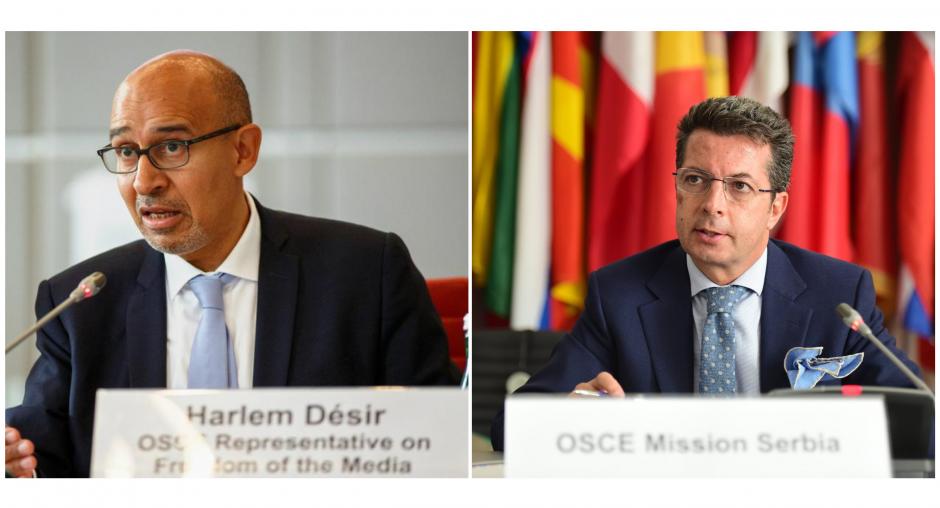OSCE Media Freedom Representative and OSCE Head of Mission to Serbia stress importance of free access to information, following new Government decision

VIENNA/BELGRADE, 1 April 2020 – The OSCE Representative on Freedom of the Media, Harlem Désir, and the Head of the OSCE Mission to Serbia, Andrea Orizio, expressed their concerns today over a new decision by the Government of Serbia on public information during the current health emergency and the impact that this could have on free access to information in the country.
On 28 March, the government adopted a five-point decision regulating the centralization of public information on the coronavirus pandemic during the current state of emergency. The Decision mentions that all information to the public is to be shared by the Prime Minister or by individuals authorized by the Crisis Management Taskforce. The decision also refers to the implementation of health-related measures and other information related to the treatment of the COVID-19 disease. This decision seems to exclude media and journalists from getting information on the pandemic from sources other than the ones mentioned in the Decision.
“Access to information is key for the media, which plays an important role in this time of health crisis in providing vital information to the public and in the fight against the spread of false information on the pandemic,” Désir said. “While I fully understand the need to combat the dissemination of false information during this health emergency, I am concerned about the impact of this decision on the work of the media and journalists, as well as their ability to report on the pandemic and to publish information stemming from diverse sources.” He stressed that the decision could negatively affect local media the most, including their capacity to report on local issues related to the pandemic.
“The OSCE Mission to Serbia fully supports all the efforts of public health professionals and the Government in dealing with this unprecedented situation, including providing reliable information to citizens during the COVID-19 pandemic. In order to preserve trust, prevent anxiety or panic, and ensure co-operation of citizens, it is essential to further safeguard the free flow of information from all levels of government, maintain pluralism of sources and full transparency during the state of emergency,” Orizio added.
Désir and Orizio recalled the joint statement published by the Representative on 19 March, together with David Kaye, UN Special Rapporteur on the promotion and protection of the right to freedom of opinion and expression and Edison Lanza, IACHR Special Rapporteur for Freedom of Expression, which stresses that: “Journalism serves a crucial function at a moment of public health emergency, particularly when it aims to inform the public of critical information and monitors government actions. We urge all governments to robustly implement their freedom of information laws to ensure that all individuals, especially journalists, have access to information.”
They also highlighted the importance of safeguarding freedom of expression, which will be very important for the future implementation of the new media strategy in Serbia, which was adopted in late January thanks to the joint commitment and inclusive effort of all stakeholders the Serbian Government, professional associations and civil society organizations.
The OSCE Representative on Freedom of the Media observes media developments in all 57 OSCE participating States. He provides early warning on violations of freedom of expression and media freedom and promotes full compliance with OSCE media freedom commitments. Learn more at www.osce.org/fom, Twitter: @OSCE_RFoM and on www.facebook.com/osce.rfom.
